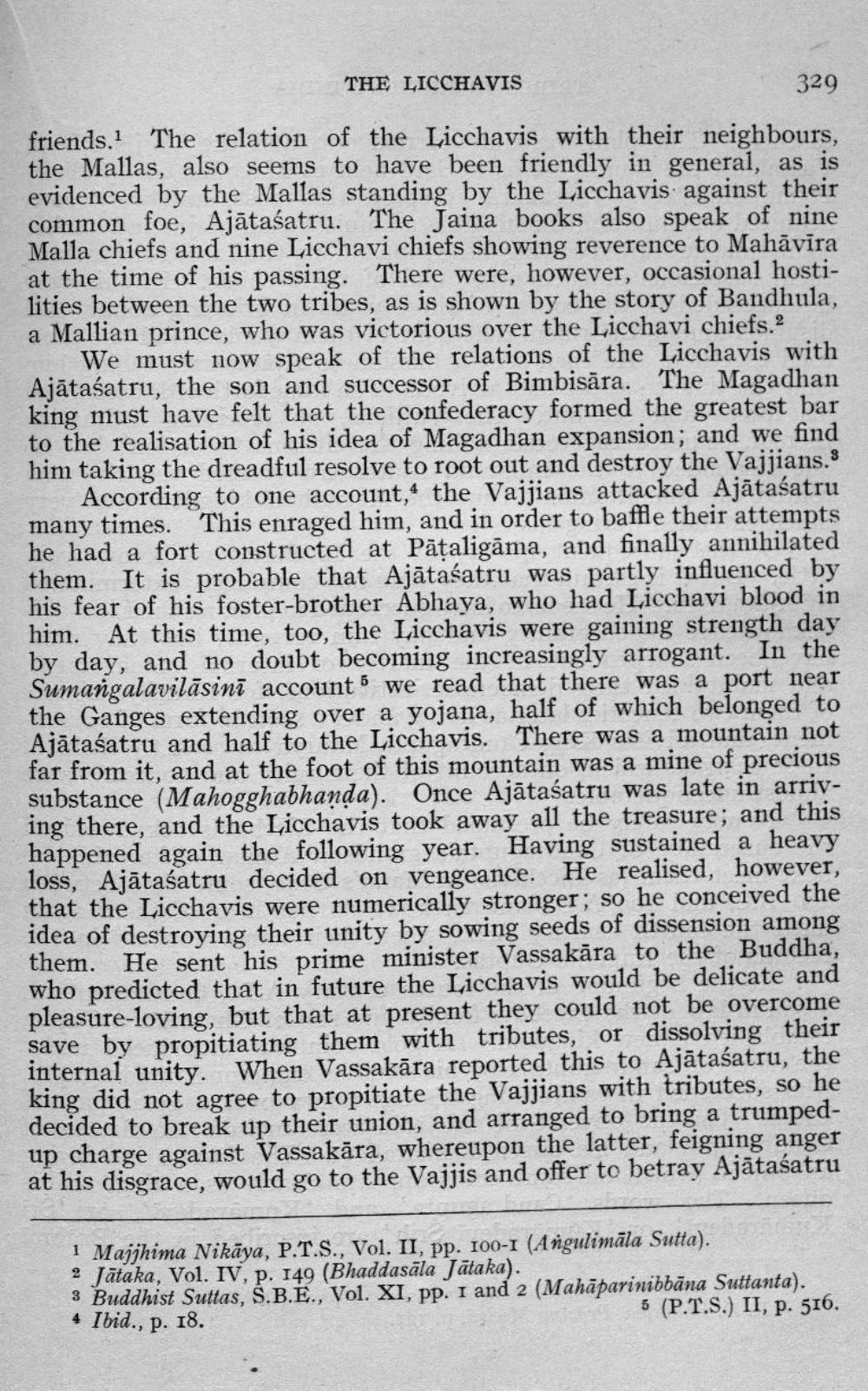________________
THE LICCHAVIS
329 friends. The relation of the Licchavis with their neighbours, the Mallas, also seems to have been friendly in general, as is evidenced by the Mallas standing by the Licchavis against their common foe, Ajātaśatru. The Jaina books also speak of nine Malla chiefs and nine Licchavi chiefs showing reverence to Mahāvīra at the time of his passing. There were, however, occasional hostilities between the two tribes, as is shown by the story of Bandhula, a Mallian prince, who was victorious over the Licchavi chiefs.
We must now speak of the relations of the Licchavis with Ajātaśatru, the son and successor of Bimbisāra. The Magadhan king must have felt that the confederacy formed the greatest bar to the realisation of his idea of Magadhan expansion; and we find him taking the dreadful resolve to root out and destroy the Vajjians.
According to one account,4 the Vajjians attacked Ajātaśatru many times. This enraged him, and in order to baffle their attempts he had a fort constructed at Pătaligāma, and finally annihilated them. It is probable that Ajātasatru was partly influenced by his fear of his foster-brother Abhaya, who had Licchavi blood in him. At this time, too, the Licchavis were gaining strength day by day, and no doubt becoming increasingly arrogant. In the Sumangalavilāsinī account 5 we read that there was a port near the Ganges extending over a yojana, half of which belonged to Ajātaśatru and half to the Licchavis. There was a mountain not far from it, and at the foot of this mountain was a mine of precious substance (Mahogghabhanda). Once Ajātaśatru was late in arriving there, and the Licchavis took away all the treasure; and this happened again the following year. Having sustained a heavy loss, Ajātasatru decided on vengeance. He realised, however, that the Licchavis were numerically stronger; so he conceived the idea of destroying their unity by sowing seeds of dissension among them. He sent his prime minister Vassakāra to the Buddha, who predicted that in future the Licchavis would be delicate and pleasure-loving, but that at present they could not be overcome save by propitiating them with tributes, or dissolving their internal unity. When Vassakāra reported this to Ajātaśatru, the king did not agree to propitiate the Vajjians with tributes, so he decided to break up their union, and arranged to bring a trumpedup charge against Vassakāra, whereupon the latter, feigning anger at his disgrace, would go to the Vajjis and offer to betray Ajātaśatru
1 Majjhima Nikāya, P.T.S., Vol. II, pp. 100-1 (Angulimāla Sutta). 2 Jätaka, Vol. IV, p. 149 (Bhaddasāla Jätaka). 3 Buddhist Suttas, S.B.E., Vol. XI, pp. 1 and 2 (Mahāparinibbāna Suttanta). 4 Ibid., p. 18.
5 (P.T.S.) II, p. 516.




